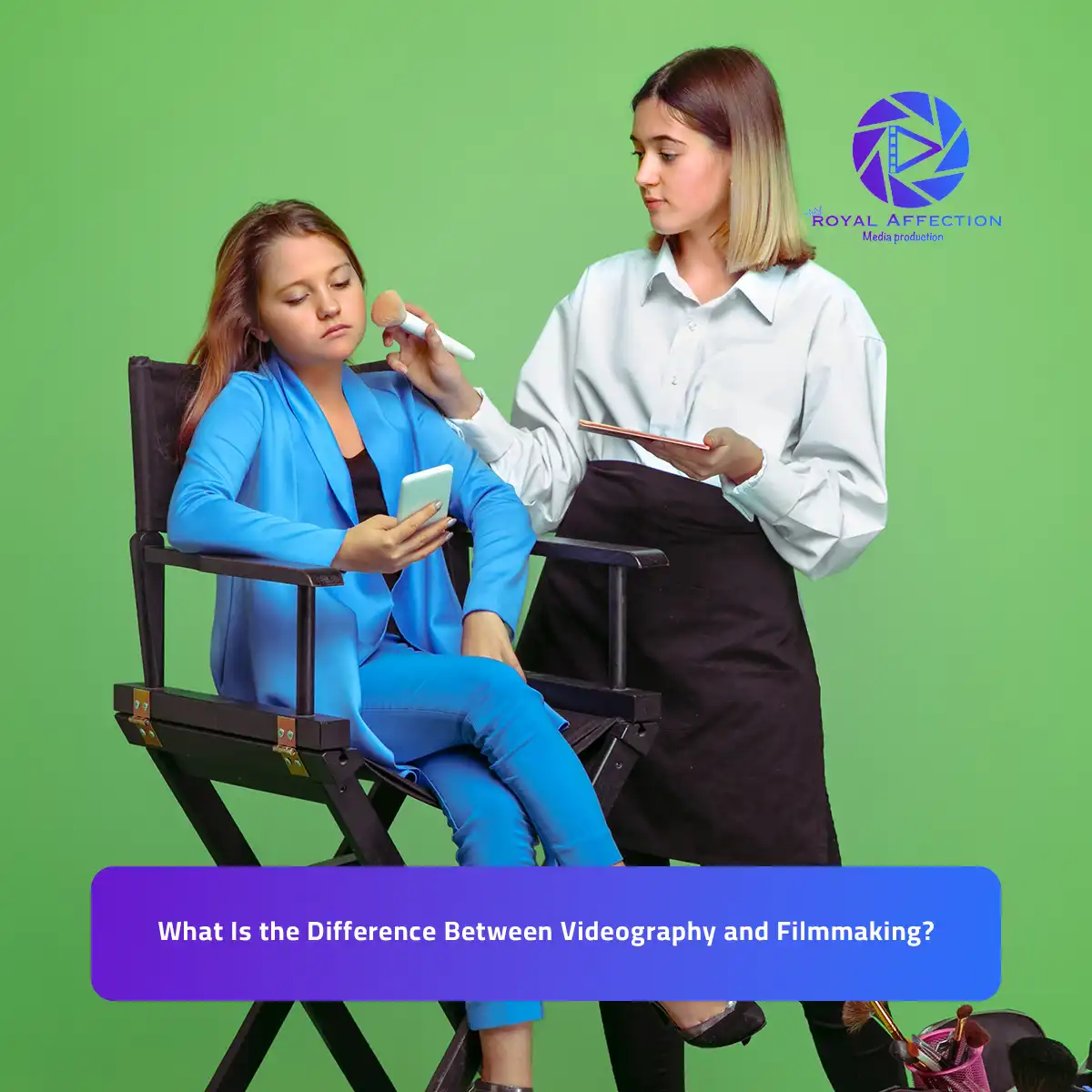If you’ve ever wondered about the difference between videography and filmmaking, you’re not alone. While both videographers and filmmakers work with cameras to capture moving images, their approaches, goals, and styles differ significantly. Whether you’re producing a corporate video, a documentary, or a feature film, understanding the difference between videography and filmmaking can help you choose the right approach for your project.
In this article, we’ll break down the key distinctions between videography and filmmaking, including their unique characteristics, roles, and when each approach is most appropriate.
Defining Videography: What Does a Videographer Do?
Videography is the process of capturing live events or creating video content in a straightforward manner. Videographers often work on smaller-scale projects, such as weddings, corporate videos, interviews, or promotional content. They typically work alone or with a small crew, handling most aspects of the production themselves—from filming to editing.

Difference Between Videography and Filmmaking
Key Characteristics of Videography:
- Smaller Productions: Videographers typically handle smaller projects that don’t require large crews or extensive pre-production.
- Real-Time Events: Videography often involves capturing live events, such as weddings, conferences, and performances.
- Single-Person Crew: A videographer is often a one-person crew responsible for filming, editing, and producing the final video.
- Short Turnaround: Videography projects generally have quicker turnaround times, often delivered within days or weeks.
- Focus on Documentation: Videography is more focused on documenting events or creating straightforward video content without the artistic storytelling often seen in filmmaking.
Videographers work on capturing moments as they happen and generally don’t focus as much on intricate storytelling, character development, or dramatic techniques.
What Is Filmmaking?
Filmmaking involves the art of creating a film, whether it’s a feature-length movie, documentary, or short film. Filmmaking requires a larger production team and more planning, as it is a highly creative process that involves storytelling, direction, scriptwriting, and often special effects. Unlike videography, which often centers around capturing real-time events, filmmaking is designed to evoke emotions and convey stories through complex visual and audio techniques.
Key Characteristics of Filmmaking:
- Larger Productions: Filmmaking typically involves larger projects, with a full crew including directors, cinematographers, sound designers, and editors.
- Scripted Content: Filmmaking usually involves a script and detailed planning of scenes, dialogue, and camera angles.
- Storytelling Focus: Filmmaking emphasizes storytelling, character development, and emotional engagement with the audience.
- Pre-Production, Production, and Post-Production: Filmmaking follows a structured process that includes pre-production (planning, scriptwriting), production (shooting the scenes), and post-production (editing, sound, special effects).
- Longer Turnaround: Filmmaking projects can take months or even years to complete, depending on the complexity of the project.
In filmmaking, everything is carefully planned and staged to create a polished, engaging final product that tells a story or conveys a message through creative direction and visual aesthetics.
Key Differences Between Videography and Filmmaking
While both videography and filmmaking involve capturing video, there are key differences between the two approaches. Let’s explore the difference between videography and filmmaking in terms of purpose, scale, and production methods.
1. Purpose and Goals
- Videography is typically focused on documenting real-time events or creating straightforward content with a clear purpose, such as corporate videos or social media content.
- Filmmaking is driven by storytelling and artistic vision, with the goal of creating an emotional connection with the audience through a structured narrative.
2. Scale of Production
- Videography often involves smaller-scale productions with limited crew, usually handled by one or two people who take on multiple roles (filming, editing, producing).
- Filmmaking generally involves a larger production team with specialized roles, such as directors, cinematographers, scriptwriters, sound designers, and editors.
3. Style and Creativity
- Videography tends to have a more practical approach, with a focus on documenting and delivering polished, professional content. The creative scope is often limited by the need to capture events as they happen.
- Filmmaking allows for more creative freedom, with a focus on visual storytelling, artistic direction, and emotional engagement. Filmmakers often use different cinematic techniques to evoke mood, atmosphere, and character depth.
4. Time and Planning
- Videography projects often have shorter timelines, with minimal pre-production planning and faster post-production. The focus is on capturing moments efficiently and delivering content quickly.
- Filmmaking projects take much longer, with detailed planning during pre-production, complex shooting schedules, and extensive post-production editing, sound design, and special effects work.
5. Equipment and Technology
- Videographers typically use more versatile, lightweight equipment, such as DSLR or mirrorless cameras, which are easier to transport and set up for live events.
- Filmmakers often use higher-end cinema cameras, along with a range of specialized equipment like cranes, dollies, and advanced lighting setups to achieve cinematic visuals.
When to Choose Videography vs. Filmmaking
Understanding the difference between videography and filmmaking can help you decide which is best suited for your project. Here’s when to choose each approach:
When to Choose Videography:
- Documenting Events: For events like weddings, corporate functions, interviews, or live performances, videography is ideal because it captures real-time moments as they happen.
- Budget-Friendly Projects: Videography is a more cost-effective option for projects with smaller budgets, as it typically requires less equipment and a smaller crew.
- Short Videos: For projects that require a quick turnaround, such as social media content or short promotional videos, videography is a great choice.
When to Choose Filmmaking:
- Storytelling and Creative Vision: Filmmaking is best for projects that require a strong narrative or creative vision, such as feature films, documentaries, or music videos.
- Larger Budgets and Productions: If your project has a bigger budget and requires a full production team, filmmaking is the right choice.
- Cinematic Quality: Filmmaking is the way to go if you’re looking for a polished, cinematic look with high production value, artistic direction, and emotional impact.
By understanding the difference between videography and filmmaking, you can make an informed decision on which approach aligns best with your project’s goals and budget.
Conclusion
The difference between videography and filmmaking lies in their scope, style, and purpose. While videography is focused on documenting events and delivering straightforward content with quick turnaround times, filmmaking involves complex storytelling, larger crews, and an emphasis on artistic direction. Whether you need a videographer for a corporate event or a filmmaker to bring your creative vision to life, knowing these distinctions will help you choose the right professional for your project.
Ready to start your project? Contact us today to discuss whether videography or filmmaking is the best fit for your needs and how we can help bring your vision to life.

